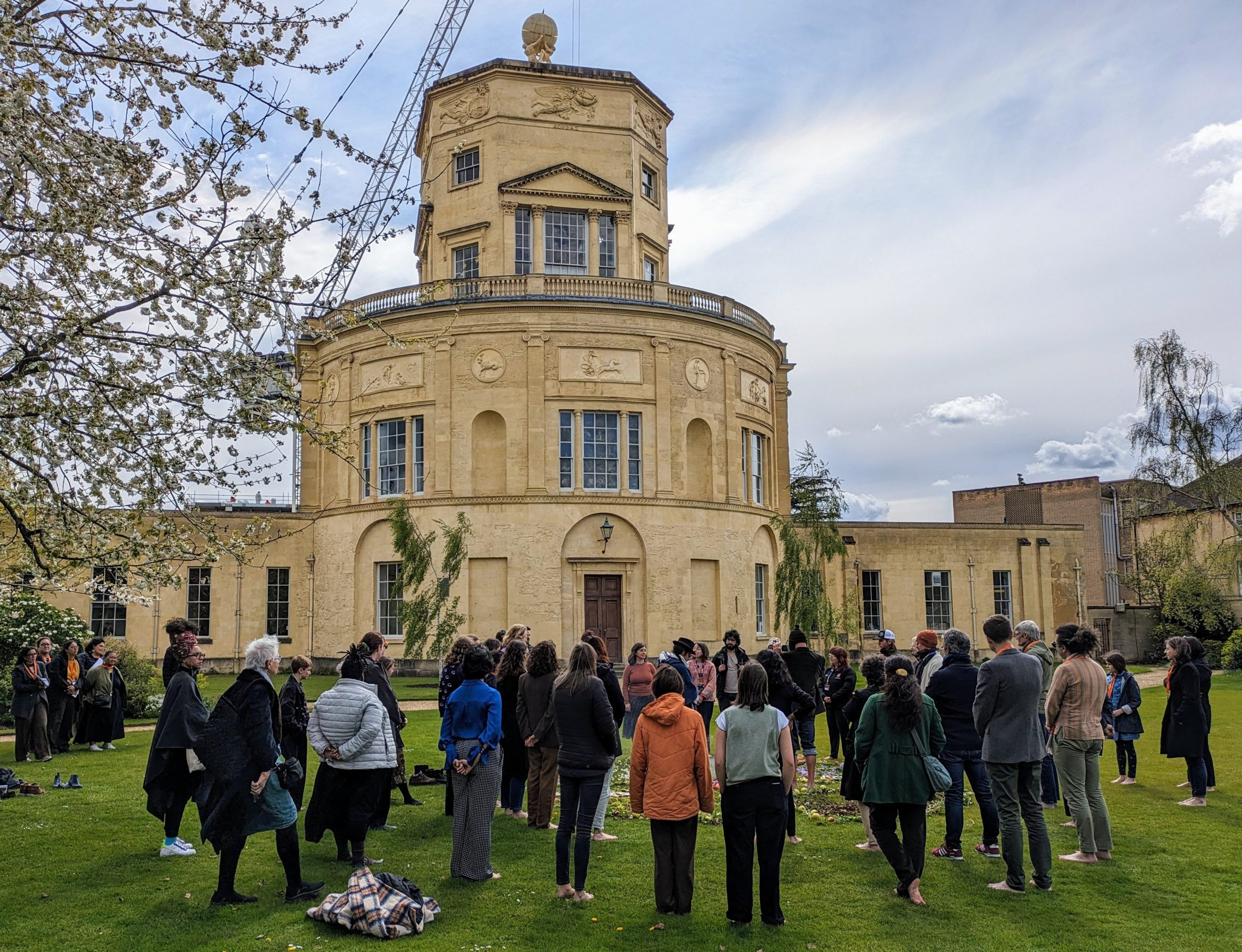Thinking with and alongside Critical Indigenous Scholarship at Green Templeton

Green Templeton hosted a series of sessions and events, as part of an international conference closing a five-year cycle of activities by doctoral and postdoctoral researchers in the TORCH Critical Indigenous Studies Network in April.
The interdisciplinary conference aimed to explore Indigeneity in all its diversity while critically engaging with Indigenous scholarship. Under the title ‘Thinking with and alongside Critical Indigenous Scholarship’, it brought together nearly 150 researchers and students from around the world, with some Indigenous scholars travelling from as far away as New Zealand, South America, and Canada. They met online and in person across Oxford, at venues including St Anne’s College, the Taylor Institution and the Radcliffe Humanities Building, as well as Green Templeton, where the conference began with a welcoming Andean ceremony led by Dario Iza (President of Pueblo Kitukara, Ecuador). This, and other ceremonies led by Indigenous scholars, honored the natural elements and embodied diverse modes of knowing and being in relation to them.
As Green Templeton student and conference organiser Malvika Gupta (DPhil International Development, 2017) explained, these ceremonies enabled the conference to ‘expand the horizon of scholarship, which could potentially help us approach life and making meaning of its different aspects more holistically. This could be a small step towards acknowledging and healing colonial legacies, allowing us to reimagine and co-construct the epistemological architecture of the university moving forward.’
In between these ceremonies, panels, roundtables, film screenings, and an art installation, were covered a wide range of issues and subjects, from storytelling and shamanic representations to midwifery knowledges and transforming formal education; the work of Indigenous scientists and debates at the anthropology / science interface to political ontologies, with a particular focus on strategies for building critical indigenous studies in the UK.
A final keynote by Krushil Watene (Waipapa Taumata Rau, University of Auckland), on ‘educating for intergenerational justice’, richly illustrated some of the ways in which Indigenous communities around the world value relationships, and how we all have a role to play in ‘relating well.’ She explains, ‘Educating for intergenerational justice calls for action – and responsibility-taking for historical injustice, ongoing oppression, and for a world built on better foundations. All of the places where education exists have a role to play – our academic institutions, our local schools, our communities, and families. Creating space for uncomfortable conversations as well as safe space for reimagining our world anew together is not only an important step forward but needed more than ever.’
Conference organiser Professor Laura Rival (Anthropology and Development) commented that, ‘In addition to renewing academic thinking about Indigeneity, the conference explored some of the specific ways in which Indigenous scholarship is contributing to science. What made the conference so exciting was its experimental, work-in-progress nature. Many felt the conference allowed them to bring together two aspects that are usually kept separate in academic life: one’s personal life and one’s research pursuits. As a participant commented, we now need to figure out how to honour the relations we have woven, and remain engaged, rather than let the experience (at times jarring) fall into the past and resume old habits.’
The conference was made possible thanks to the generosity of Annual Fund donors and others.

